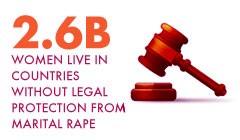
Email: info@stopbreastcancer.org
Phone: 800.622.2838
Visit the Website
- Add Us on Facebook
- Follow Us on Twitter
Geography: United States
Founded: 1991
Address:1101 17th Street NW
Washington, DC 20036
NBCC has grown to include hundreds of organizations, representing several million patients, professionals, women, their families and friends. Coalition members include cancer support, information and service groups, as well as women's health and provider organizations.
NBCC's mission is to eradicate breast cancer, the most common form of cancer among women in the United States, by focusing the administration, U.S. Congress, research institutions and consumer advocates on breast cancer. NBCC encourages all those concerned about this disease to become advocates for action and change. The Coalition informs, trains and directs patients and others in effective advocacy efforts. Nationwide, women and men are increasing the awareness of breast cancer public policy by participating in legislative, scientific and regulatory decisions, promoting positive media coverage and actively working to raise public awareness.
Over the course of nearly two decades, here are just some highlights of NBCC's major accomplishments:
- created and mobilized a powerful, effective and diverse network of trained grassroots activists, giving breast cancer a meaningful voice in Washington, D.C. and state capitals, in laboratories and health care institutions
- increased federal funding for breast cancer research, including over $2 billion for the Department of Defense (DOD) Breast Cancer Research Program
- conceived and spearheaded an unprecedented model of consumer involvement and innovative research at the DOD peer-reviewed Breast Cancer Research Program, which has attracted more than 29,000 proposals since its inception
- urged the Clinton Administration to create a National Action Plan on Breast Cancer, a unique collaboration of government, science, private industry and consumers, and co-chaired the Plan's implementation
- channeled the outrage that low-income and uninsured women had access to screening but not treatment into a public policy strategy and successful fight for a system of care, the Breast and Cervical Cancer Treatment Act
- established an innovative Annual Advocacy Training Conference to empower thousands of advocates to push for quality care, research and health care access, and to better serve their communities
- created Project LEAD®, an acclaimed science-based training program for breast cancer advocates, with over 1,500 graduates and a website for continuing education
- developed Beyond the Headlines to bring the perspective of trained breast cancer activists to research studies and media reports, to cut through the rhetoric and provide unbiased breast cancer information, and to offer tools for understanding the complexities inherent in breast cancer issues
- launched a Clinical Trials Initiative to make certain that the right research gets done correctly and quickly, that trained breast cancer survivors are included in trial design and accrual; and that policies encourage access to trials and mandate insurance coverage for participants
- partnered with the biotechnology company, Genentech, in a groundbreaking collaboration between advocates and industry, to bring the life-saving breast cancer treatment, Herceptin®, to market, improving survival and disease free progression rates in women with metastatic breast cancer who overexpress HER2
- assisted groups nationwide and throughout the world to strengthen their ability to speak up and out about political, scientific and health care issues
- created an Environmental Initiative to lead the fight for a national strategy to address the links between environmental factors and breast cancer
- developed a Quality Care Initiative to put the power in the hands of women with the disease to make informed treatment decisions and promote systems change and created the Guide to Quality Breast Cancer Care, a consumer guidebook that helps those affected by breast cancer to better understand what quality care is and how to get it
- earned recognition as one of the top 25 most influential groups in national health policy in a University of Chicago study
- created breakthrough programs to shape the future of breast cancer research, including a Strategic Consensus Conference on biomarkers
- launched Personal Stories, Public Action™ and The Face of Breast Cancer® campaigns to remind the public of the personal toll of breast cancer